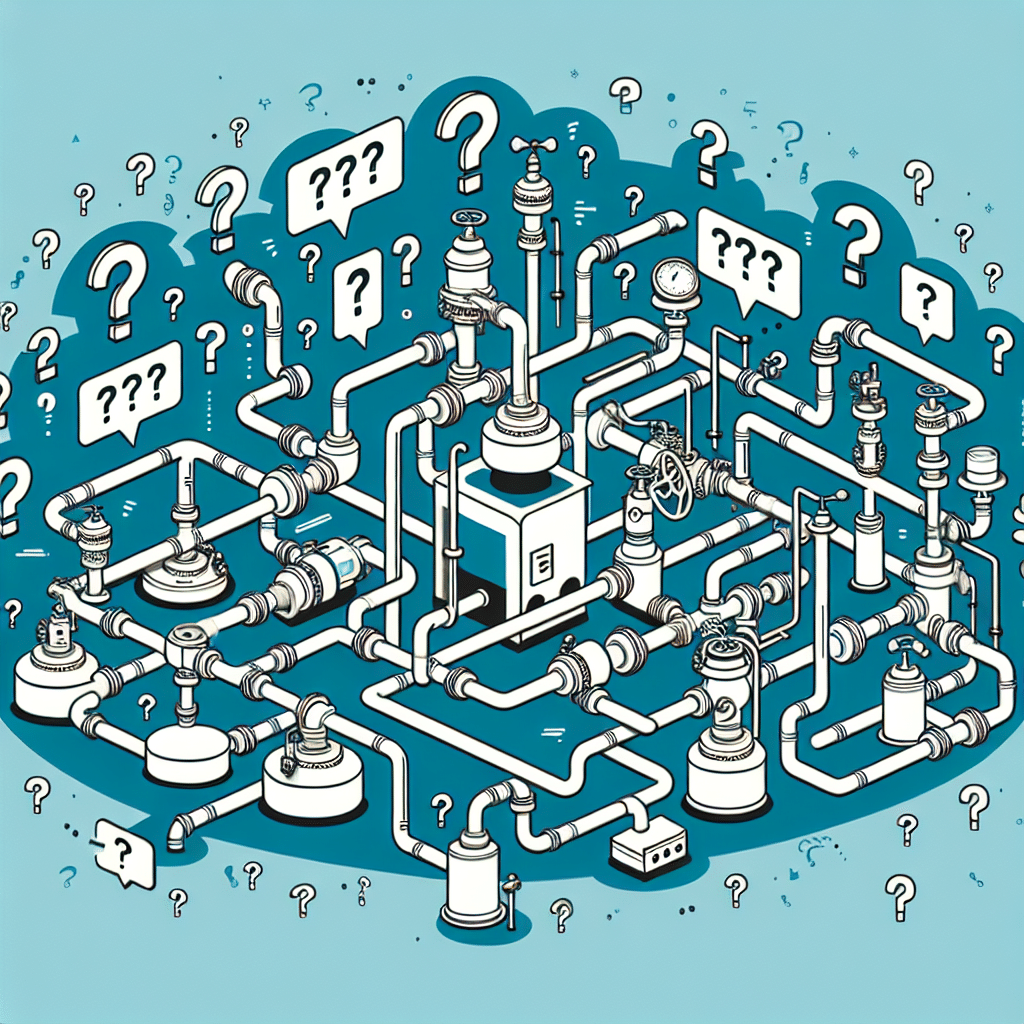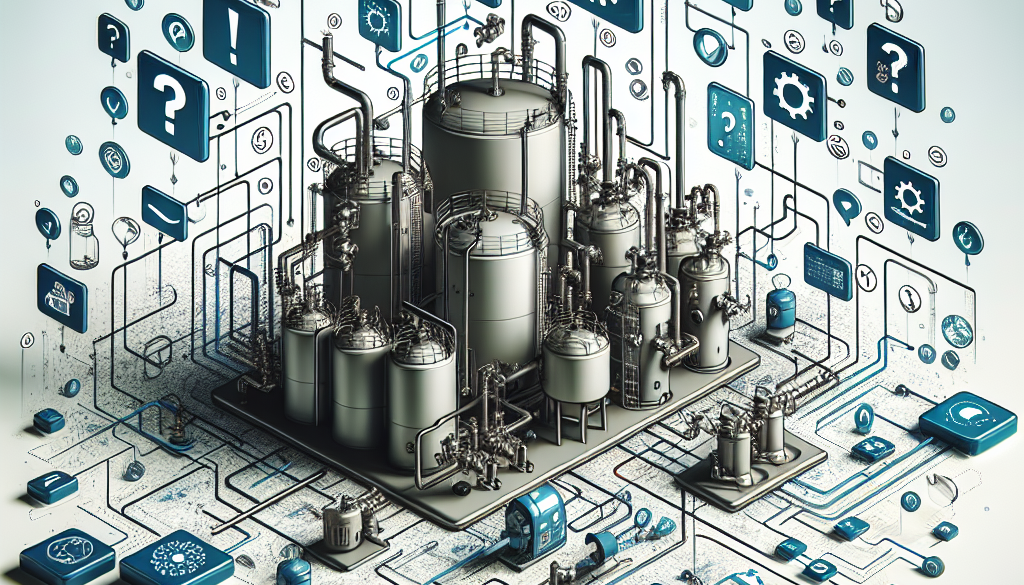CIP Systems-Are They Becoming Misunderstood?
-
Table of Contents
- CIP Systems: Understanding Their Role and Misconceptions
- The Importance of CIP Systems in Industry
- Common Misconceptions About CIP Systems
- Optimizing CIP System Performance
- Statistical Insights into CIP System Usage
- Conclusion: Clarifying the Role of CIP Systems
- ETprotein: Your Partner for High-Quality Protein Products
CIP Systems: Understanding Their Role and Misconceptions

Clean-in-place (CIP) systems are a critical component of modern manufacturing processes, particularly in industries where hygiene and cleanliness are paramount, such as the food, beverage, and pharmaceutical sectors. These automated systems are designed to clean the interior surfaces of pipes, vessels, process equipment, and associated fittings, without disassembly. Despite their widespread use, there is a growing concern that CIP systems are becoming misunderstood in terms of their capabilities, limitations, and proper implementation. This article aims to demystify CIP systems, explore common misconceptions, and highlight their importance in ensuring product safety and quality.
The Importance of CIP Systems in Industry
CIP systems serve a vital function in industries where contamination can lead to product spoilage, safety concerns, or non-compliance with regulatory standards. By providing a method to clean equipment efficiently and effectively, CIP systems help to:
- Minimize the risk of bacterial contamination and biofilm formation.
- Ensure consistent product quality and safety.
- Reduce downtime by allowing cleaning and sanitization processes to occur without disassembly.
- Conserve resources such as water, chemicals, and energy through controlled and optimized cleaning cycles.
Despite these benefits, misconceptions about CIP systems can lead to improper use and maintenance, potentially compromising their effectiveness.
Common Misconceptions About CIP Systems
Several myths and misunderstandings surround CIP systems, which can lead to suboptimal performance or even failure. Some of the most prevalent misconceptions include:
- One-Size-Fits-All: The assumption that a single CIP system design can be applied universally across different applications and industries.
- Set and Forget: The belief that once installed, CIP systems require minimal monitoring or adjustment.
- Chemical Reliance: Over-reliance on cleaning chemicals, with insufficient attention to mechanical action and temperature control.
- Energy Efficiency Myths: Misunderstanding the energy consumption of CIP systems, leading to either overestimation or underestimation of their environmental impact.
Addressing these misconceptions is crucial for the optimal operation of CIP systems.
Optimizing CIP System Performance
To ensure that CIP systems function effectively, several factors must be considered:
- Customization: Designing CIP systems tailored to specific processes and equipment configurations.
- Monitoring and Control: Implementing sensors and automation to monitor critical parameters such as flow rate, temperature, and chemical concentration.
- Balanced Cleaning Approach: Achieving the right balance between mechanical action, chemical use, temperature, and time to optimize cleaning efficacy.
- Regular Maintenance: Conducting routine inspections and maintenance to prevent system degradation and ensure consistent performance.
By addressing these areas, industries can maximize the benefits of their CIP systems and avoid the pitfalls of misunderstanding.
Statistical Insights into CIP System Usage
Recent studies and industry reports provide valuable insights into the usage and perception of CIP systems:
- A survey conducted by a leading industry publication revealed that over 60% of food and beverage manufacturers believe that their CIP systems could be optimized for better performance.
- Research indicates that improper CIP system operation can lead to up to a 20% increase in operational costs due to inefficiencies in water, energy, and chemical usage.
- Advancements in CIP technology, such as real-time monitoring and data analytics, have been shown to improve cleaning effectiveness by up to 30%, according to industry case studies.
These statistics underscore the need for a deeper understanding and more effective utilization of CIP systems.
Conclusion: Clarifying the Role of CIP Systems
In conclusion, CIP systems are an indispensable part of modern manufacturing, but their potential is often not fully realized due to misconceptions and lack of knowledge. By dispelling myths and promoting best practices, industries can enhance the efficiency, sustainability, and effectiveness of their CIP processes. Understanding the nuances of CIP system design, operation, and maintenance is key to ensuring product safety, quality, and regulatory compliance.
ETprotein: Your Partner for High-Quality Protein Products
In addition to understanding the intricacies of CIP systems, it’s essential to source high-quality ingredients for manufacturing processes. ETprotein is a company that stands out for its commitment to providing superior protein products. Their extensive range of organic bulk vegan proteins and L-(+)-Ergothioneine (EGT) is designed to meet the diverse needs of industries, ensuring that your products are made with the finest ingredients available.
Whether you’re in the nutraceutical, pharmaceutical, cosmeceutical, or food and beverage industry, ETprotein’s offerings can enhance your product’s quality. With a focus on non-GMO, allergen-free attributes, and high purity levels, ETprotein is the go-to source for all your protein requirements.
For more information or to sample their products, please contact ETprotein and email sales(at)ETprotein.com today.
About ETprotein:
ETprotein, a reputable protein and L-(+)-Ergothioneine (EGT) Chinese factory manufacturer and supplier, is renowned for producing, stocking, exporting, and delivering the highest quality organic bulk vegan proteins and L-(+)-Ergothioneine. They include Organic rice protein, clear rice protein, pea protein, clear pea protein, watermelon seed protein, pumpkin seed protein, sunflower seed protein, mung bean protein, peanut protein, and L-(+)-Ergothioneine EGT Pharmaceutical grade, L-(+)-Ergothioneine EGT food grade, L-(+)-Ergothioneine EGT cosmetic grade, L-(+)-Ergothioneine EGT reference grade and L-(+)-Ergothioneine EGT standard. Their offerings, characterized by a neutral taste, non-GMO, allergen-free attributes, with L-(+)-Ergothioneine purity over 98%, 99%, cater to a diverse range of industries. They serve nutraceutical, pharmaceutical, cosmeceutical, veterinary, as well as food and beverage finished product distributors, traders, and manufacturers across Europe, USA, Canada, Australia, Thailand, Japan, Korea, Brazil, and Chile, among others.
ETprotein specialization includes exporting and delivering tailor-made protein powder and finished nutritional supplements. Their extensive product range covers sectors like Food and Beverage, Sports Nutrition, Weight Management, Dietary Supplements, Health and Wellness Products, and Infant Formula, ensuring comprehensive solutions to meet all your protein needs.
As a trusted company by leading global food and beverage brands and Fortune 500 companies, ETprotein reinforces China’s reputation in the global arena. For more information or to sample their products, please contact them and email sales(at)ETprotein.com today.












